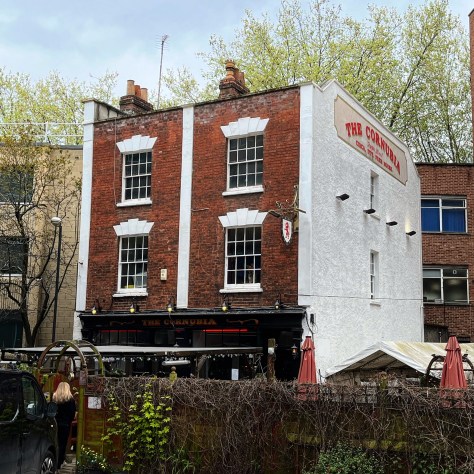Was in London on Monday. I had gone up the night before, so I could avoid travelling on a Monday morning.
Monday was a team coaching day, where we did our insights (colours) thing. I think the most useful aspect is discussion and working together, as for the insights I am always reminded of horoscopes.
Monday evening, I couldn’t see Jupiter as it was cloudy, saw it last week and later in the week, but not on the day it was the closest to the earth in 107 years.
On Tuesday I presented at the GuildHE Policy and Planners Network meeting in London on analytics and student support. This was well received presentation and there was lots of questions and discussion afterwards.
Wednesday I was back in Bristol. I had a constructive meeting on the marketing, event, production requirements for the HE objectives assigned to me, and how these will fit into the planning and campaign processes for 2022-23. We also discussed transformative content (thought leadership) and the planning I have done on producing transformative content that will support the delivery of the HE sector strategy and ensuring it is aligned to the Jisc core strategy.
Read this HEPI blog post at the weekend. The blog says
There is a tendency for the literature to connect innovation and technology in discussions about models of change. Clearly, technology can have a significant impact on activities and practice and can lead to innovation but, if badly designed or implemented, can create unnecessary costs and additional bureaucracy. The key to good innovation is that it leads to better productivity; better work practice; and better delivery of activities. In planning any change, it is important to understand how the innovation that you wish to introduce will deliver those three things: better productivity, better practice and better delivery.
You could almost rewrite this and replace the word innovation with transformation. It goes onto say:
Innovation is also often seen as a big bang ‘thing’. This is not necessarily the case, small improvements or minor changes can have significant effects…
I was reminded of my butterfly post on digital transformation.
Do you think transformation is something that has a result (we’ve been transformed) or do you see it as an evolving continuing process (we are transforming and continue to transform)?
The Mirror reports that University of Glasgow students are unhappy about having lectures in a church with no internet access.
Though it was July 2015 when Apple Pay was introduced in the UK, I have never actually used it until August this year! I bought some parking on my phone and used Apple Pay to pay for it. It was only on Thursday that I actually used Apple Pay at a till! I paid for some shopping using the system at one of those “unexpected item in the bagging area” machines.
I know I should know this, but it was quite a seamless experience. I did have to double tap, which I didn’t think I would need to do. Well done that now, do I need to do it again? Probably not.
Friday I headed to work in our Bristol office. Had some administration to do as well as catching up with conversations and email.
Why is this post entitled oncoming vehicle approaching? Well when I was driving to London, I did see a fair few warning signs, that there was an oncoming vehicle approaching. I wasn’t sure how much I should slow down by, as there were cars behind and next to me. I wasn’t sure even which lane I should stick to, as I had no idea about the oncoming vehicle, would it be in the outside lane, or on the hard shoulder? There were a lot of unknowns and in the end I tried to ensure that I had plenty of options for moving out of the way, just in case. I never did see the vehicle, but it was quite unnerving. Writing this, it reminded me of how some people feel when it comes to the implementation and embedding of digital technology. People may be unsure of what to do and it might be all bit unnerving as they are doing what they normally do and now they are facing uncertainty.
My top tweet this week was this one.
On this day, 38 years ago, The BBC broadcast Threads, about a nuclear attack on the UK.
I remember watching it and was scared, chilled and having a feeling of total helplessness in the face of, what the time, felt like something that could quite easily happen. pic.twitter.com/K7hjir3qfo
— James Clay (@jamesclay) September 23, 2022













































